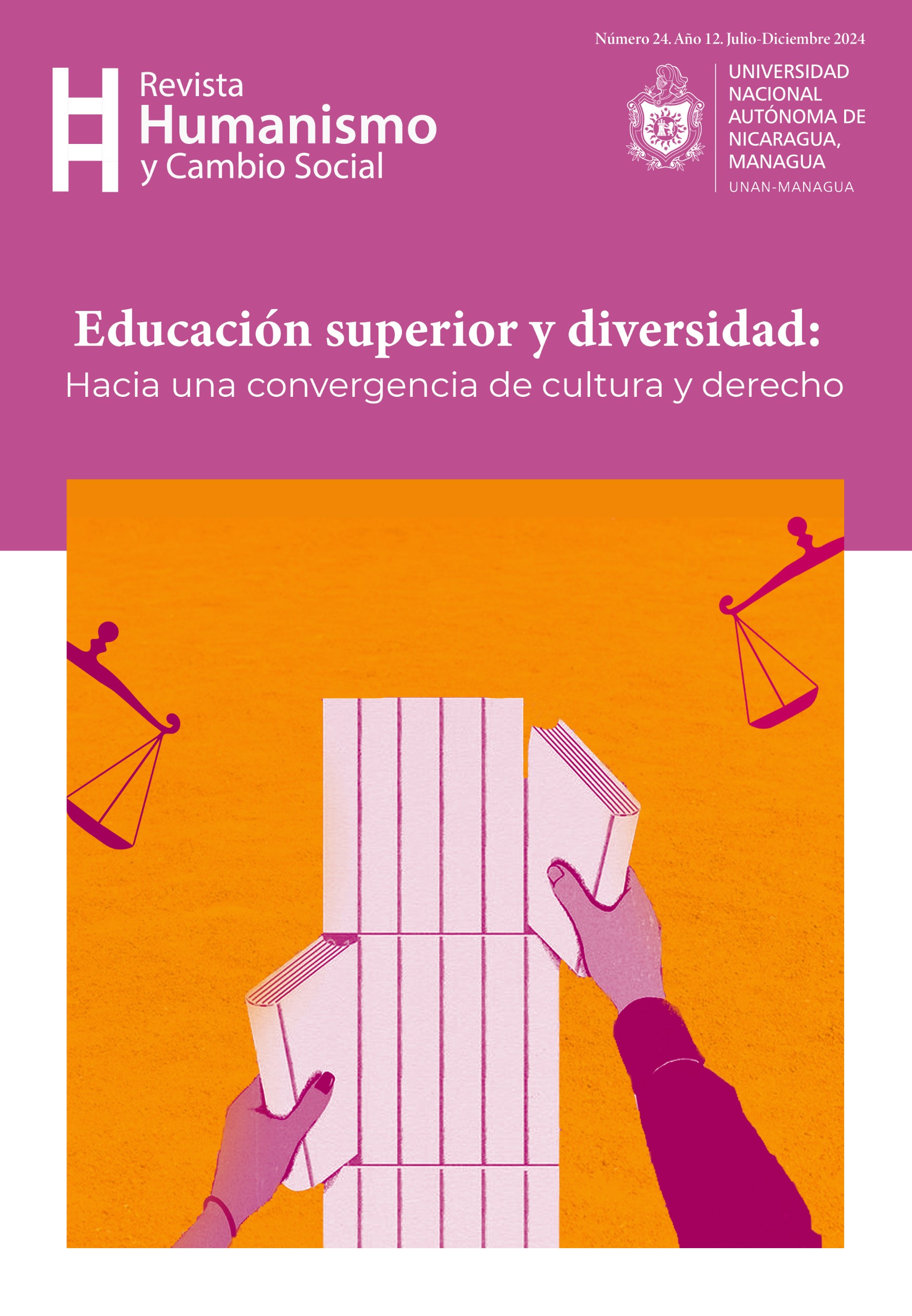Avances y retos de la educación superior pública y gratuita en Nicaragua (Breve recorrido histórico)
DOI:
https://doi.org/10.5377/hycs.v1i24.19880Keywords:
Higher Education Institutions, public university, free education, National Council for Evaluation and Accreditation, Sandinista Popular RevolutionAbstract
This essay examines the evolution of Nicaragua’s higher education system within the Latin American context, with a particular emphasis on the public and tuition-free nature of this crucial educational subsystem. To address these matters, it is essential to talk about the Sandinista Popular Revolution in its first stage, when the Institutions of Higher Education (IHE) ceased to be an exclusive object of the wealthy social sector, giving participation to all the social sectors of the country. Similarly, the period of neoliberal governments and their state policies, which aimed to dismantle the public and inclusive university system, cannot be overlooked. These policies denied the system its legally entitled budgetary resources, promoted private universities, and ultimately undermined the principle of free and accessible higher education for the popular sectors. Another aspect we reflect upon is the transformation that has occurred in university education over the past two decades. The methodology employed is qualitative, relying on bibliographic and documentary analysis.
Consequently, the sources consulted include reports and documents pertaining to the new regulatory, legal, and administrative framework governing higher education institutions (HEIs), as well as contributions from the National Council for Evaluation and Accreditation (CNEA). The analysis proceeds in several stages: first, a comparative examination of the Nicaraguan education system in relation to other countries in the region is conducted; second, a historical overview of the achievements in higher education during the Sandinista Popular Revolution (1979–1990) is presented; third, an analysis of neoliberal educational policies is undertaken; and, finally, an assessment of the scope of recent reforms is provided.
Downloads
References
Abratte, J. P. (2024) El desfinanciamiento de la educación pública en un modelo neoliberal. Alfilo. https://ffyh.unc.edu.ar/alfilo/el-desfinanciamiento-de-la-educacion-publica-en-unmodelo-neoliberal/
Arríen J.B. y Matus Lazo, R. (Coords) (1989) Nicaragua: Diez años de educación en la Revolución. Claves Latinoamericanas / Ministerio de Educación, Nicaragua.
Aveleyra, R. (2023). Informe regional: Educación superior en América Latina. CLACSO.
Comisión política universitaria, UNAN (1980). La Universidad y la Revolución. Publicación de la Comisión Política Universitaria, UNAN.
De Castilla, M. (2018) Summa Pedagógia. Lea Grupo Editorial.
Decreto No. 116 de 2007 [con fuerza de ley] por medio del cual se aprueba la Declaración del Día Nacional de la Educación. 18 de diciembre de 2007. Publicado en La Gaceta, Diario Oficial No. 1 del 02 de enero de 2008.
Instituto Internacional de la UNESCO para la Educación Superior en América Latina y el Caribe. (2008). Declaración de la Conferencia Regional de Educación Superior en América Latina y el Caribe. Cartagena de Indias, Colombia.
Jelin, E. (2001) ¿De qué hablamos cuando hablamos de memorias? En: Elizabeth J. Los trabajos de la memoria. Editorial Siglo Veintiuno Editores.
Ley No. 89, de 1990, por la cual se aprueba la Autonomía de las Instituciones de Educación Superior. La Gaceta, Diario Oficial, Nº 77. 5 de abril de 1990.https://www.lagaceta. gob.ni
Ley No. 704, de 2011. Por la cual se crea el Sistema Nacional para el Aseguramiento de la Calidad de la Educación y Reguladora del Consejo Nacional de Evaluación y Acreditación. La Gaceta, Diario Oficial, No. 14. 12 de septiembre de 2011.
Ley No. 1176, Ley de Reformas y Adición a la Ley Nº. 89, Ley de Autonomía de las Instituciones de Educación Superior y de Reformas a la Ley Nº. 582, Ley General de Educación. La Gaceta, Diario Oficia No. 222. 06 de diciembre de 2023.
Organización de las Naciones Unidas para la Educación y la Cultura (2022). Informe de seguimiento de la educación en el mundo: Informe sobre género 2022: Profundizar en el debate sobre quienes todavía están rezagados. [UNESCO] https://doi.org/10.54676/LHMC7003
III Conferencia Regional de Educación Superior para América Latina y el Caribe. (2018). Declaración de Córdoba. Integración y Conocimiento, 2(7), 96-105.
Downloads
Published
Issue
Section
License
Copyright (c) 2025 Revista Humanismo y Cambio Social

This work is licensed under a Creative Commons Attribution-NonCommercial-ShareAlike 4.0 International License.




